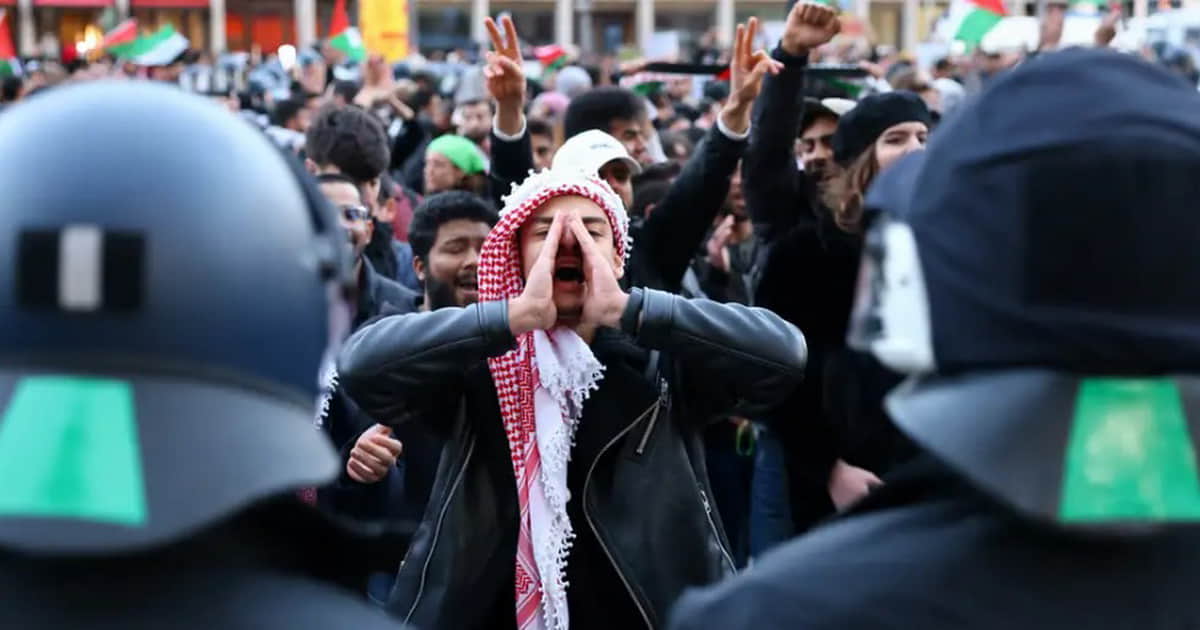How Middle East war is dividing Europe

The Israeli-Palestinian issue has divided European governments. It's not surprising that the German Foreign Minister, Baerbock, recently stated that Hamas wants "to fan the flames of hatred and violence" into the global community. With the beginning of Israel's ground operation in the Gaza Strip (which is expected to result in numerous civilian casualties), the tension in the region is only escalating.
The European Union must be prepared that this war will be a severe test for European unity. Read more on the divisions in Europe given the new Middle East war in the article by EuroPravda journalist Iryna Kutielieva - European Front of Israeli War: How Pro-Palestine Protests Divided EU. Several demonstrations in support of Palestine swept through European capitals and their governments reacted differently to them.
For instance, pro-Palestine demonstrations in the UK were allowed and proceeded without significant incidents despite their scale. In contrast, in Germany, Austria, and France, such demonstrations were prohibited, and the police dispersed participants. In countries with a significant Muslim population, government representatives also took part in demonstrations, supporting Palestine.
For example, the mayor of Sarajevo, Benjamina Karic, participated in such rallies in the capital of Bosnia and Herzegovina. She stated that the city's residents, who endured the "longest siege in modern history" in the 1990s, know what it's like to be without water and food. Pro-Palestine actions in European countries are usually organised by Palestinian and Muslim groups, peace associations, workers' and students' unions, and left-wing political parties.
The new war in the Middle East has demonstrated how differently Europeans understand its causes and the responsibilities of the parties involved. German politicians sharply criticised the demonstrations in Berlin, where participants celebrated the Hamas militants' attack on Israel. Chancellor Olaf Scholz announced a ban on supporting Hamas activities.
It's not surprising that a country with one of the largest Jewish and Muslim communities is experiencing tension. However, despite its historical responsibility for the Holocaust, Germany increasingly supports Israel. The ban on pro-Palestine demonstrations has raised an important issue since the right to peaceful assembly is enshrined in the constitution.
Even the Commissioner for Anti-Semitism in Germany, Felix Klein, expressed concerns about the ban on demonstrations. He is worried about limiting the freedom of peaceful protesters. France, having the highest numbers of Jewish and Muslim populations in Europe, is also experiencing tension, especially following the murder of a teacher by an Islamist militant, which French authorities linked to events in Gaza.
Another consequence of the Middle East conflict for France has been a wave of fake bomb threats. Given these risks, the government's decision to ban pro-Palestine protests, while being contested, appears logical. However, in Spain, ministers representing left-wing parties condemned Israel's actions and criticised the EU for its "double standards" in the conflict, siding with Tel Aviv.
Diverging views on the situation in Israel have been even seen within European institutions. Nonetheless, the EU has eventually managed to adopt a common position on the Middle East situation. However, it is clear that with Israel's ground operation in the Gaza Strip, tension in Europe will only escalate.
The EU needs to be prepared that this war will be a severe test of European unity.
If you notice an error, select the required text and press Ctrl + Enter to report it to the editors.